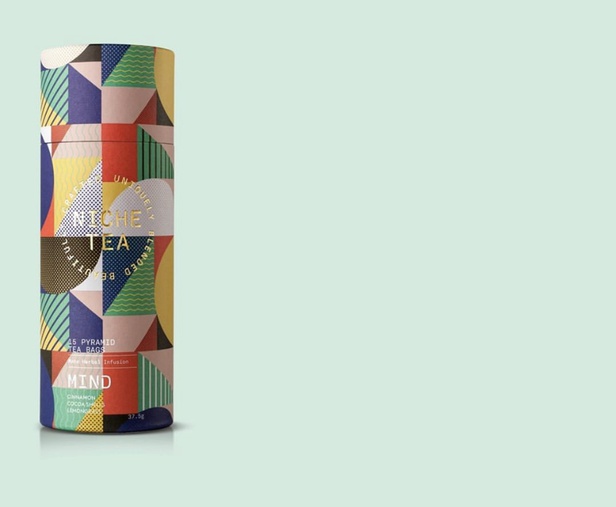≥ 07.07.20

That familiar cup of coffee is often the go-to for the start of the day, but many of us are caffeine sensitive. Plant scientist Rebecca Lazarou explains why our Mind blend is the perfect alternative.
Mind: Energise- Revitalise- Vitality
Modern life is hectic. There is always something to do and we are constantly on the go. Fatigue and a lack of energy is something that affects many of us on a daily basis. It's so easy to slip into the habit of grabbing a quick coffee. However, this has its' consequences as it can disrupt our equilibrium and we can become so reliant on it. Often, we can feel dozy if we do not get our regular caffeine hit.
Whilst that magic bean gifts us with a miraculous wave of energy, it can also leave us feeling jittery, anxious, and often unable to sleep. What's worse is that excessive caffeine intake disrupts our hormones. Let me explain how this works. When you have coffee, excitatory neurotransmitters begin firing in the brain, giving you a burst of energy. However, this firing of neurotransmitters also stimulates your pituitary gland in our brain which controls our bodies' hormone release. It communicates with our adrenal glands, which then release the hormones cortisol and adrenaline. It is a stress response, and generating these hormones in excess causes long term degrading effects on our body (5). It also interrupts the flow of other hormones as hormones are interconnected and each impacts the release of the other.
This can be a particular problem for women and their menstrual cycle. Adrenaline affects progesterone which when out of balance disrupts the monthly cycle. Whilst it is true some people are more sensitive to coffee than others, it's worth being conscious of the effects coffee can have on your body. So what do we do? We all need more energy from time to time and thankfully the plant world is generous enough to gift us other tasty plants to charge us up.
Yerba mate (Ilex paraguariensis) is a gorgeous herb from South America and it is particularly popular in Argentina, Paraguay, and Uruguay. With grassy notes and a refreshing flavour, it is a gentle and very effective way to lift your energy levels. Yerba Mate contains caffeine- however, it also contains a molecule called L-theanine which simultaneously calms the nervous system. Therefore, you get to enjoy the benefits of caffeine without becoming jittery. It is also massively antioxidant and full of vitamins and amino acids that your body needs to thrive (1).
Cocoa shells are another fantastic ingredient I love to blend into my smoothies or put on top of my cereal. Cocoa (Theobroma cacao) has traditionally been known as "food of the Gods" and has been used ceremonially for millennia. It has mood-boosting properties as it boosts our levels of anandamide and serotonin and phenylethylamine which are all feel-good chemical messengers in our brain. However, it also contains theobromine which is a molecule similar in shape to caffeine. So again, you reap the benefits of gaining energy without the side effects of espresso. In fact, a study showed that high-quality cocoa helped reduce the effects of chronic fatigue syndrome for participants (2).
Gotu Kola (Centella Asiatica) is a wonderful plant and is very popular in the 5000 year - old Indian medicinal doctrine of Ayurveda. Traditionally used to boost brain power, and to cope with stress, Gotu Kola is a valuable plant to have on your shelf. Modern science is catching up with this ancient knowledge now, as a study showed that this plant increased cognitive awareness and lifted the mood in elderly patients (3). In fact, studies show that in the right doses it can also help with symptoms of anxiety (4).
Thankfully you don't have to look far to find these ingredients. They have all been thoughtfully blended here at Niche HQ. Balanced with other herbs, leaves, and barks, it makes a delectable tea that allows you to enjoy nurturing your energy levels naturally.
Rebecca Lazarou
IG: @Laztheplantscientist http://www.rebeccalazarou.com/
References 1. Heck C, de Mejia E. Yerba Mate Tea (Ilex paraguariensis): A Comprehensive Review on Chemistry, Health Implications, and Technological Considerations. Journal of Food Science. 2007;72(9):R138-R151. 2. Sathyapalan T, Beckett S, Rigby A, Mellor D, Atkin S. High cocoa polyphenol rich chocolate may reduce the burden of the symptoms in chronic fatigue syndrome. Nutrition Journal. 2010;9(1). 3. Wattanathorn J, Mator L, Muchimapura S, Tongun T, Pasuriwong O, Piyawatkul N et al. Positive modulation of cognition and mood in the healthy elderly volunteer following the administration of Centella asiatica. Journal of Ethnopharmacology. 2008;116(2):325-332. 4. 4. U J, TK S, LN M, PK D, D B. A Clinical Study on the Management of Generalized Anxiety Disorder With Centella Asiatica [Internet]. PubMed. 2020 [cited 1 June 2020]. Available from: https://pubmed.ncbi.nlm.nih.gov/20677602/ 5. 5. Riksen N, Rongen G, Smits P. Acute and long-term cardiovascular effects of coffee: Implications for coronary heart disease. 2020.